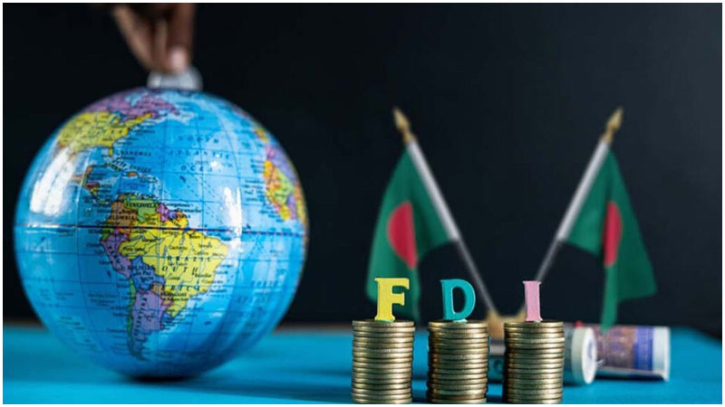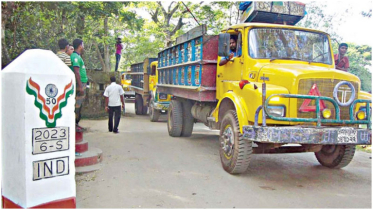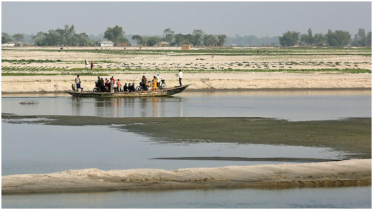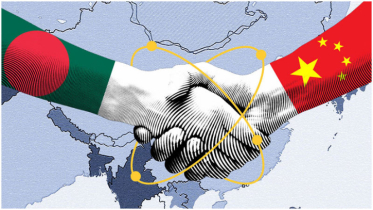The challenges and prospects of foreign investment in Bangladesh

Over the past two decades, Bangladesh has emerged as one of the fastest-growing economies in Asia, driven by a vibrant manufacturing sector, a growing middle class, and a steady rise in export earnings. As the country prepares for its transition from least developed country (LDC), attracting foreign direct investment (FDI) has become increasingly vital to sustaining this momentum.
The recently held Bangladesh Investment Summit 2025 served as a timely platform to highlight the country’s evolving investment landscape. While the summit showcased new opportunities in different sectors, it also drew attention to the persistent challenges that continue to shape investor perceptions. A closer look at these factors reveals the complex but promising road ahead for foreign investment in Bangladesh.
Rapid economic expansion in Bangladesh stands in stark contrast to its relatively modest annual inflows of FDI. In 2023, despite being the second largest economy in South Asia, Bangladesh was able to get only around $3 billion in FDI while Vietnam attracted around $39bn. Bangladesh is also routinely behind its regional contemporaries India, Indonesia, Vietnam, Pakistan, Myanmar, and Sri Lanka in terms of the FDI to GDP ratio. This discrepancy begs the question of where Bangladesh is falling short in securing consistent flows of FDI.
Efforts to attract more FDI are often undermined by the ease of doing business in Bangladesh for foreign investors. The arbitrary changes in investment policies create difficulties for investors in getting clear guidance on tax policies, environmental clearances, and land acquisition procedures. Regulatory authorities in Bangladesh frequently impose barriers on profit repatriation, making it difficult for investors to access their earnings and dividends. Meanwhile, neighbouring countries like India, Vietnam, and Indonesia have streamlined their investment regulations, offering a more predictable and investor-friendly environment. These administrative hurdles discourage long-term commitments and increase the cost of doing business.
Corruption has been often highlighted by national and international experts as one of the prevailing barrier to increased FDI. It is also behind the negligent development of infrastructure and transport networks needed for smoother operations of business throughout the country. Instead of working diligently to create transparency and minimize corruption, adopting legislations such as the Sarkari Chakori Ain Bill, which limits investigation of corruption allegations against government officials, points out deficiencies in our legislative and rule-making processes.
Another drawback for Bangladesh is its inimical financial environment. Although the country boasts of good macro-economic stability, its capital markets are still in the early stages of development, and the financial sector relies heavily on banks. High levels of non-performing loans, inadequate banking oversight, and periodic foreign currency shortages has created a fragile financial ecosystem. Along with this, last year’s political upheaval has added to concerns among international investors regarding business and legal security. Efforts to strengthen democratic institutions and uphold rule of law are not just important for governance, they are crucial for economic stability and investor confidence.
Bangladesh’s ability to attract multinational investors is closely tied to how it presents itself on the global stage. Factors such as clean and organized urban spaces, improved infrastructure, a welcoming environment for foreign nationals, political stability, efficient governance, and a skilled workforce play a crucial role in shaping a positive image that can significantly boost foreign investment. The country has a growing middle class and increasing internet penetration also presents attractive opportunities in consumer goods, e-commerce, and digital services.
The remarkable success of Bangladesh’s RMG industry was driven by a strong synergy between local initiative and foreign investment -- a model of collaboration which must now be replicated to foster growth in other emerging sectors as well. As seen during the BIDA summit, foreign investors are increasingly drawn to renewable energy projects in Bangladesh, including solar, wind, and waste-to-energy. Public-private partnerships playing a key role in advancing sustainable development in this sector. Similarly, IT sector, pharmaceuticals, agro-based industries have significant untapped potential. With improvements in logistics, infrastructures and market linkages, these sectors could attract substantial FDI and contribute to rural employment and export diversification.
Bangladesh’s strategic location between South and Southeast Asia provides it with a key advantage for facilitating regional trade. The establishment of Special Economic Zones (SEZs) and upgrades to port infrastructure in Chattogram and Mongla can strengthen its attractiveness to foreign investors. The country should actively promote these strategic advantages and investment facilities such as low taxes, free economic zones, tax breaks, duty-free import options, trade agreements to attract greater flows of foreign direct investment.
The country has a young and expanding workforce, but a shortage of skilled labor especially in technology-driven sectors which is a major concern for investors. To remain competitive in attracting high-value FDI, the country must overhaul its education system, strengthen vocational training, and emphasize STEM education to better align with industry demands.
The path to becoming a global investment destination is not without obstacles, but it is within Bangladesh’s reach. The BIDA Summit 2025 served not only as a platform to promote Bangladesh but also as a moment of reflection. Bangladesh has the resources, strategic location, and demographic advantage to become a success story in South Asia. What it needs now is consistent leadership, policy coherence, and a firm commitment to reform.
Writer: Sadia Aktar Korobi is a freelance contributor.
Source: Dhaka Tribune.
.png)




